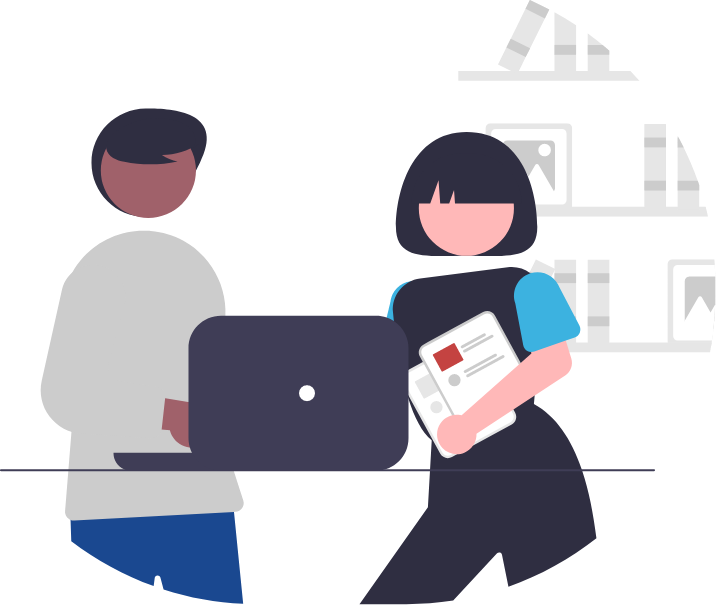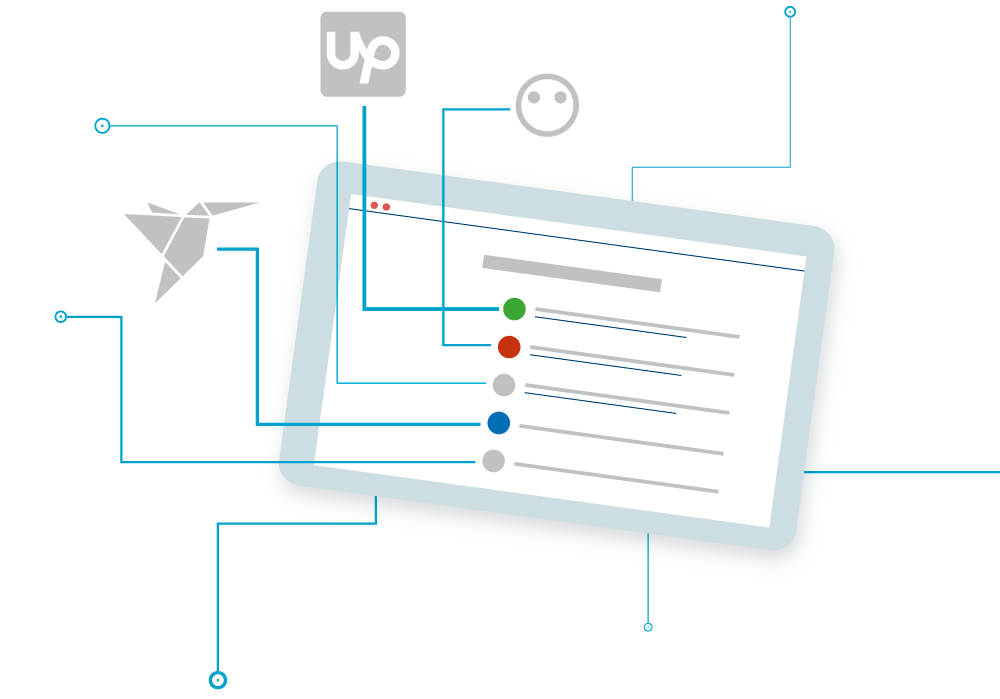How to freelance without losing your mind


Sandra Arevalo
Founder & CEO
In our previous posts, I introduced the basis for self-reflection about how to freelance while achieving a balanced lifestyle. In this post, I’ll continue sharing some practices that could support you in keeping your mental health in the quest for success.
Let’s start digging a bit into your own personal situation: how would you rate yourself in the following aspects?
What is your personal purpose and how does it connect with your freelancing activities?
Related video content
- Can you share out loud what your personal purpose is and how it connects with your freelancing activities?
- Do you see a good alignment between your professional and personal goals?
- Is any of them interfering with the other?
Have you defined your business plan? (Where do you want to arrive when and how?)
- How many hours of work you’ll need to charge at what rate to be able to cover your expenses and enjoy how much profit every month?
- How much time you’ll need to manage your freelancing career, apart from the time you’ll effectively work and charge for? (Here I mean the time to find clients, process your invoices, manage your finances, taxes, quarterly or monthly official reports, etc)?
- Are there any skills you’ll need to acquire to stay on top of your game? How much time would you need to dedicate to those?
What are your personal priorities? How would you picture a well-balanced LIFESTYLE?
- Have you enough time to exercise and include physical activity within your routine
- Have you included enough sleep hours (minimum 7 per day) and eating times in your tight schedule?
- Do you have a hobby you’d like to dedicate time to? Are you assigning enough time to your social interactions? (meeting friends and having fun doing something totally unrelated to work)
- Is there enough time within your schedule to dedicate to your family?
Without further introduction, let’s get to the tricks that could help you move the needle in any of these aspects, right in the direction of your mental wellbeing and mind/body/spirit balance:
Discipline: the art of holding yourself accountable (no one else will)
One thing is to define a plan (which is already a big challenge per se when you consider all the items to keep in balance), but unless you execute it, it’ll only be a good-intended list of wishes. Try to put every time block in your agenda, and add there even the tasks you have to accomplish every day with realistic times assigned. You’ll be amazed to see what’s the really available time you have to commit to other activities; there’s no better filter to know if you can afford to accept more work, more social activities or more responsibilities from other sources (family or volunteering for example?). ANd if you haven’t gotten lucky withy any opportunity, you might want to look for companies that hire remote developers and the like.
Working all day long in your pyjamas from the sofa while watching Netflix series. Sounds familiar? Not precisely the healthiest habit for your body (ergonomics!), your mind (focus!) and your spirit. As tempting as it can be, avoid unhealthy behaviours that don’t support you feeling well in the long term. In the beginning, you may feel super privileged to be able to do this (I’m not saying you should never try it, it can be stress-relieving and reassuring at some point when you need some distraction or even some company from the TV characters), but is definitely not the healthiest to help you feel a sense of achievement and pride about your lifestyle choices.
If you work from home, drawing the line between your personal and your business matters can be difficult. COVID-19 accelerated the shift to work from home, forcing our work and personal spaces to blend without previous notice, but also impacted freelancers in a different way than those in full-time employment, particularly in mental health matters. Much has been said about the best practices to work from home, so we wouldn’t repeat that here. I’d just like to mention how important is to have a separate space to work and focus, and how critical it’s that you avoid multitasking between work and home maintenance during your day (especially in your top productivity times). Grocery shopping, laundry, cooking, cleaning, etc can be planned too (have I mentioned how useful batch cooking and online shopping is?). Assigning separate times to each activity will help you focus on giving your best self to each. Also, being self-employed gives others the wrong impression that all your time is available for anything, so you may find yourself running errands and assuming additional responsibilities while others concentrate on their own jobs. Draw the line and don’t hesitate to highlight how valuable your time is.
Networking is key to build connections with potential clients, collaborators and build yourself a professional support network, besides covering your socialization needs. Depending on the extent of your location lockdowns due to COVID-19, you may have already forgotten how crowded the networking space is, full of activities throughout the week, colliding one with each other (and with your precious personal times). It can be stressful to decide what is worth it and what isn’t. Does FOMO ring a bell? Avoid that fear of missing out that forces you to be in as many networking events as you can possibly fit in your schedule, otherwise you’ll end up jeopardizing your balance, dedicating too much time to unproductive networking without leaving enough time for the actual work. Networking should feel like working, so pick your events consciously and make sure you follow up on the connections you just did. You don’t want to end up with a pile of business cards (if that’s still a thing after the non-contact COVID-19 habit) that you don’t even have time to process and act upon.
Block time to assess your day and set the priorities for the next. Review your to-do list (better if every activity was already in your calendar) and re-define your agenda for the next day when needed. Doing regular checks vs. your goals (weekly, monthly, quarterly, yearly) will help you track your progress and define timely actions to correct the course. Go back to your plan if you find yourself thinking too long when someone asks you how you’re doing vs. your goals.
Divide and conquer: about delegating and knowing when it's best to hire support
The art of delegation
The search for success (being economic profit, reach, recognition, you name it) could impose a lot of pressure on you. If you’re a highly competent professional, it’ll be difficult for you to believe there are human beings out there that could do things as good as you can. But believe me: there are even some that can do things better than you.
Before you start to feel overwhelmed, list the activities that take your time and assess their level of relevance and how much value they add.
Think also about the things that you enjoy doing the most (and the ones that you don’t like at all), and balance their relevance with how much value-added you bring when performing them. Focus on your strengths and areas of improvement.
Now, think how much actitivies could cost to oursource and how much time they take to get done. Then compare that cost with the potential income you could make during that same time frame.
Eureka! You have discovered a list of activities that might be too time-consuming to do them yourself, with no further income reward for the time invested. Someone else could be swiftly executing such duties, saving you time and allowing you to focus on the tasks that are highly rewarding.
This may be difficult at the beginning since you may have a very limited budget to start your freelancing career, but believe me, before your time is fully booked to accept new clients, it’d be useful to have this list in mind and start contacting potential talents to take some tasks on your behalf.
If your budget allows it, start by delegating high time-consuming, low-difficulty tasks associated with your household. (Unless cleaning the restrooms and ironing your shirts spark any special joy in your life, these would be the first tasks you can start to gratefully delegate).
Bring tech into your life
Another area to explore delegating tasks is to incorporate technology tools to make your life easier. For example, I use Calendly synchronized with my agenda allowing people to negotiate meetings with my calendar without the non-value-added back-and-forth of doing this manually over chats or emails (plus, it allows my contacts to save the meeting on their own calendars and send reminders automatically, so people don’t forget to show up).
I use a private Whereby room with entrance control, allowing me to have a single meet-me-link I use for all my meetings (so I don’t have to spend any time to setup videocall connections for each meeting I have).
We as a team use SocialBu and Metricool to schedule our social media posts and stories, so we plan ahead in time and keep our social presence alive without being constantly connected to each network (which can be a total productivity killer if you don’t set a time limit for it).
Other tools like Trello (to manage your projects), Mailchimp (to handle your email marketing), Zapier (to automate tasks between services that you could only connect with the help of a developer), Typeform (to manage your data entry forms), Avaza (to manage hourly reports and automatic recurring invoicing) and Stripe (to manage electronic payments) are only the tip of the iceberg for the tons of alternatives you have at hand to make your life easier.

Boost your online freelancing career with our training programs designed to help you work from anywhere!

Make sure you explore some of them and start making technology work for you.
Persistence: who motivates the motivator?
Finding your optimal routine will need many trial and error cycles, but once you get into it it’ll help you to stick to your plans and see your progress towards your goals. Treat yourself with compassion when your goals are not achieved or you’re failing to follow your routines, being demanding with yourself is important but not to the level of stressing you out more than that undesired boss you decided to abandon.
Having your personal purpose on top of your mind is important to increase your level of energy when the lows come. “Why is that I wanted to do this? Oh yeah! That’s my purpose, and I’m fully committed to it.”
Equally important is to celebrate your achievements, celebrate as much as possible every little step ahead. In the freelancing roller-coaster elevating your energy levels while celebrating your highs will dampen the impact of the lows, helping you have a more stable and enjoyable journey.
This is my last blog post before taking a well-deserved and deeply needed summer break (don’t ask me the last time I took a real break, I might don’t even remember it!). Hope my own reflections have given you ideas to work on those areas you’d like to balance more.
Don’t hesitate to share your own experience in our social channels. Your content suggestions are also very welcome (believe it or not, inspiration can be limited!). At Wisar, we are obsessed with creating highly-useful and top-quality content for you, and would love to see you being part of the process!
See you back in September!
The search is over!
Get multi-platform freelance job offers directly in your email!
Forget about those endless hours of manual searching. Let our powerful aggregation and recommendation engine do the hard work for you.

Was this post useful for you?
Share your thoughts and engage with like-minded independent workers.

